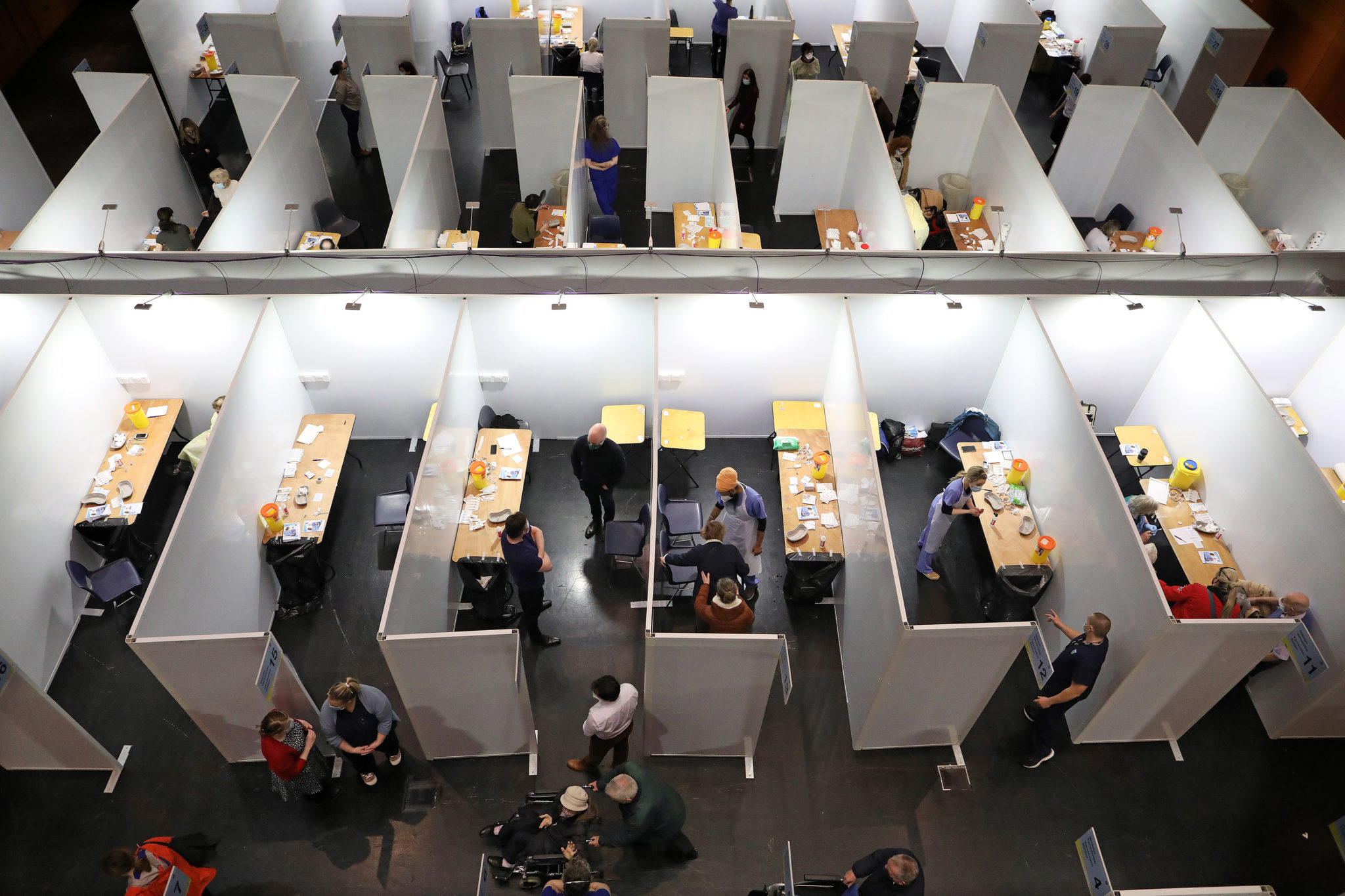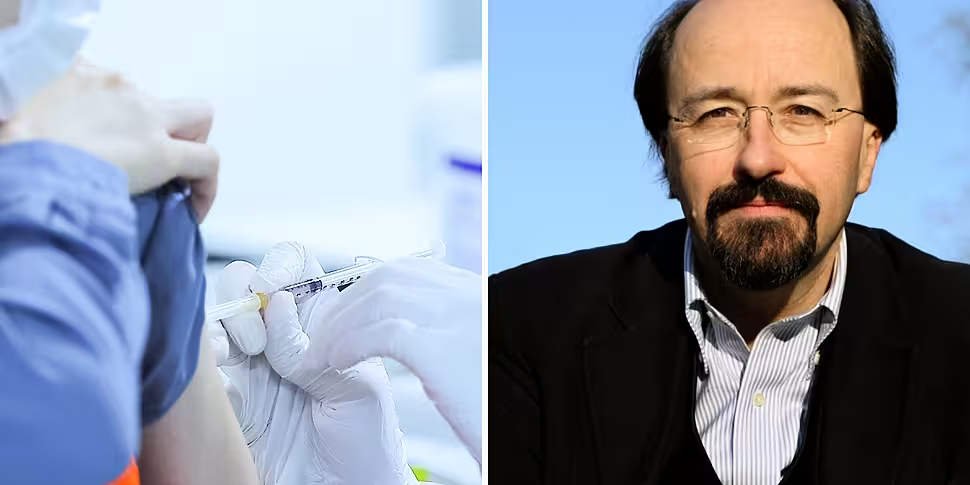Global herd immunity to the coronavirus could be achieved as early as January next year if the current rate of vaccination continues.
That is according to Bill Emmott, the Co-Director of the Global Commission for Post-Pandemic Policy and the former Editor of the Economist.
Speaking to The Pat Kenny Show yesterday, he explained that by looking at the projected figures on COVID-19 vaccinations and the total doses administered around the world to date, he was able to come up with a provisional date for international herd immunity.
"I just looked at the numbers, worldwide, 34 million doses are being put into arms every day," Mr Emmott said.
"We need to get to herd immunity which scientists think is generally around 80% of adults.
"You take the number of adults in the world, divide by the number of doses that are being put into arms, and you get 210 days if we could keep up this rate."
However, he added that there are two caveats dictating whether herd immunity can be realised globally by January next year.
"One is that half of those doses are going into Chinese arms. China is the world's biggest vaccinator right now, 16 to 20 million doses every day of the week," Mr Emmott said.
"So the question is can the rest of the world achieve the sort of pace that China is achieving.
"Second question: Can we produce vaccines at the rate that China is doing? Half of the world's vaccine output is currently in China, so there's going to be a big surplus of Chinese vaccines available once China gets to its own level of herd immunity.
"The questions facing the west are will our vaccines be available, will we make them available, and will the world have the benefit of our better vaccines or will it be using the somewhat inferior but still effective Chinese ones?"
 Minister for Health Stephen Donnelly visits the HSE Covid-19 vaccination centre in the Helix, DCU. Photo: Julien Behal.
Minister for Health Stephen Donnelly visits the HSE Covid-19 vaccination centre in the Helix, DCU. Photo: Julien Behal.Mr Emmott explained that developing countries, for example, will choose the Chinese Sinovac over no vaccine at all while waiting for supplies of other inoculations such as Pfizer, Moderna or AstraZeneca.
He stated: "I think we're going to see the world vaccinated on current trends substantially with these Chinese vaccines and that's therefore not as good an outcome as it could be.
"The west at the G7 meeting in Cornwall last week pledged to donate one billion doses of the better vaccines, but only over the next 12 months and that's too slow.
"We need to give them sooner, and most of all we don't even need to just give them, we need to release them, because most western countries have over-ordered spectacularly.
"We've got options on all these, our contracts are getting in the way of developing countries getting hold of the Pfizer, Moderna and AstraZeneca vaccines."
Wealthy nations need to expand their overseas aid budgets to supply developing countries with vaccines, he added, as well as organising for the doses to be administered and strengthening the public health systems in poorer countries.
Herd immunity
As for global herd immunity, Mr Emmott said the main criticism levelled against his "desktop calculations" is that the majority of immunisations are being administered in urban areas.
"In concentrated, dense populations, it is, of course, easier to organise mass vaccinations more quickly," he said.
"Rural areas will take longer, they need more help and more aid from overseas aid organisations, from philanthropic foundations and civil society bodies around the world.
"It is going to take longer but from a world point of view, it is not such a huge worry because rural Africa has less impact on the rest of us in terms of travel and the spread of variants.
"But on a humanitarian basis, we need to help those rural areas get vaccinated to save lives."









